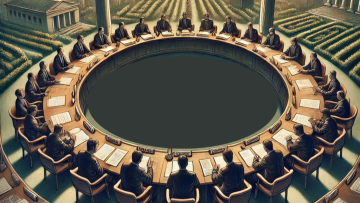Understanding the Legal Implications of Providing Alcohol to Minors in Pennsylvania
Providing alcohol to minors in Pennsylvania is a serious criminal offense that carries significant legal consequences. Whether you are a first-time offender or have prior infractions, the law is strict when it comes to protecting underage individuals from the dangers of alcohol consumption. This article serves as a comprehensive guide to understanding the laws surrounding this offense, the potential penalties, and the options available for first-time offenders in the Commonwealth of Pennsylvania.
Overview of the Offense
In Pennsylvania, it is illegal for any person to knowingly provide or sell alcoholic beverages to individuals under the age of 21. This law is enforced rigorously to prevent alcohol-related harm among minors, such as impaired judgment, accidents, or long-term health issues. Violations of this statute are considered criminal offenses and can result in misdemeanor charges that carry heavy penalties.
The crime of providing alcohol to minors is typically charged as a misdemeanor, which underscores the gravity of the offense despite it not being classified as a felony. The law does not differentiate much between first-time and repeat offenses in terms of initial charges; however, penalties may vary based on the circumstances and the offender's record.
Potential Penalties for Providing Alcohol to Minors
The penalties for providing alcohol to minors can be severe in Pennsylvania. The consequences may include:
- Fines of up to $2,500;
- Possible jail time, depending on the severity of the case;
- Suspension of the offender’s driver’s license;
- Community service requirements;
- Mandatory participation in alcohol education or treatment programs;
- Permanent entry of a criminal record if convicted.
These penalties reflect the state’s commitment to curb underage drinking and the dangers associated with it. Courts often take a hard line, especially if the provision of alcohol contributed to serious consequences such as injury or impaired driving incidents. The legal system emphasizes accountability and deterrence through these sanctions.
Factors Influencing Sentencing and Outcomes
Sentencing in cases related to providing alcohol to minors depends on numerous factors, including but not limited to:
- Whether the offender has a prior criminal record or is a first-time offender;
- If any injury or damage resulted from the provision of alcohol;
- The age of the minor involved;
- Whether the minor subsequently engaged in illegal or dangerous activities such as driving under the influence;
- The circumstances under which alcohol was provided (e.g., private party, public event, commercial transaction);
- The offender’s expression of remorse and willingness to take responsibility.
Judges exercise discretion in the sentencing process, and demonstrating accountability can help mitigate consequences. A proactive approach often includes cooperating with law enforcement, engaging in community programs, and following legal counsel’s advice carefully.
Diversion and First-Offender Programs
Pennsylvania offers diversion programs or first-offender programs intended to assist individuals charged with this offense, particularly those without a prior record. These programs provide an opportunity to avoid a permanent criminal conviction by satisfying certain conditions established by the court.
Typical conditions of participation in a diversion program may include:
- Completion of community service;
- Attendance at alcohol education classes;
- Payment of fines and court fees;
- Avoidance of any further legal violations during the program’s duration.
Successful completion of these programs usually leads to dismissal of charges and prevents the offender from having a permanent criminal record related to the incident. However, acceptance into such programs is not automatic and depends on case specifics as well as the judge’s discretion.
Legal Support and Guidance
Facing charges for providing alcohol to minors can be a distressing experience. Engaging a knowledgeable attorney is crucial to navigate the complex legal landscape. A skilled lawyer can help in:
- Clarifying charges and potential consequences;
- Negotiating plea agreements or diversion programs;
- Advocating for reduced penalties where applicable;
- Ensuring all legal rights are protected throughout the process.
Taking prompt legal action and following professional guidance can make a meaningful difference in how the case resolves.
Importance of Personal Responsibility and Remorse
The justice system in Pennsylvania values offenders who demonstrate genuine remorse and take responsibility for their actions. Acknowledging mistakes and showing willingness to amend behavior often positively influences the court’s perception of the case.
Actions that might reflect positively include:
- Voluntary participation in alcohol education or counseling programs;
- Taking steps to prevent future violations;
- Expressing sincere apology to affected parties;
- Demonstrating cooperation with legal and community authorities.
While these actions do not guarantee leniency, they contribute to a more favorable outcome.
Impact on Driver’s License and Mobility
One significant consequence of a conviction for providing alcohol to minors in Pennsylvania is the possible suspension of the offender’s driver’s license. This penalty underscores the link between underage drinking and impaired driving risks.
The duration of the suspension varies based on the offense’s nature and the court’s decision. Losing driving privileges can have profound effects on personal and professional aspects of life, making it another important reason to seek experienced legal assistance.
Broader Social and Health Implications
Beyond legal repercussions, providing alcohol to minors carries broader social responsibilities. Underage drinking is associated with several risks, including increased likelihood of accidents, poor academic performance, risky behaviors, and long-term health issues such as addiction.
Communities and individuals alike have a shared interest in minimizing underage access to alcohol. Legal frameworks in Pennsylvania reflect societal efforts to safeguard youth and promote public health.
Summary of Key Points
- Providing alcohol to minors in Pennsylvania is a criminal misdemeanor offense.
- Penalties include fines up to $2,500, possible jail time, and driver’s license suspension.
- Courts consider the circumstances, including injuries or impaired driving consequences, strictly.
- First-time offenders with clean records may qualify for diversion or first-offender programs.
- Taking responsibility and showing remorse can positively affect case outcomes.
- Legal counsel is essential for navigating charges and negotiating outcomes.
Providing alcohol to minors in Pennsylvania is an offense with serious legal and social consequences. Understanding the law, potential penalties, and available defenses is critical for those facing such charges. First-time offenders should actively seek legal assistance and consider diversion programs that might prevent a permanent criminal record.
Additionally, demonstrating genuine remorse and taking full responsibility can influence the court’s decision positively. The Pennsylvania legal system prioritizes protecting youths from the harms of alcohol and holding offenders accountable to ensure community safety. If you or someone you know is confronted with such charges, consulting with a qualified attorney is imperative to achieve the best possible outcome.
Legal Marketplace CONSULTANT — a legal company specializing in comprehensive legal services for individuals and businesses. Our team includes attorneys, legal advisors, tax consultants, auditors, and accountants who provide expert support and guidance throughout the legal process. We aim to deliver professional assistance tailored to each client`s needs.































